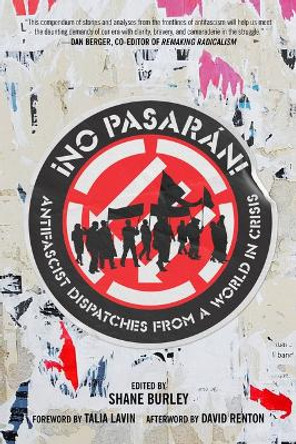Description
About the Author
David Kaiser is the Germeshausen Professor of the History of Science and professor of physics at the Massachusetts Institute of Technology. He is the author of several books, including How the Hippies Saved Physics: Science, Counterculture, and the Quantum Revival, and is coeditor of Groovy Science: Knowledge, Innovation, and American Counterculture, also published by the University of Chicago Press. His work has appeared in the New York Times and New Yorker and he is a frequent guest on NPR and in PBS NOVA documentaries.
Reviews
"A masterpiece of historical analysis. . . . Skillfully written and a pleasure to read." * Nature * "A work of coherence, accessibility, and rhetorical power not generally found in [these] volumes. . . . Kaiser has woven together a unique, compelling, and kaleidoscopic portrait of the quantum revolution and its implications. He doesn't hide from the messiness of science but embraces the challenge of understanding its underlying human and social conditions." -- Jose G. Perillan * Physics Today * "Quantum Legacies does not disappoint. . . . It is a breath of fresh air to see physics writing like this: lucid and friendly, sober and thoughtful, and willing to trust the reader's engagement and intelligence rather than demanding the former and underestimating the latter. . . . Superb popular science. . . . It is hard for me to imagine any physicist who wouldn't enjoy the fine cloth from which it is cut, nor the pleasing effect it makes." -- Philip Ball * Physics World * "Engrossing. . . . Leave[s] us with a richer picture of physics as a lived activity." * Los Angeles Review of Books * "Most history books written for the wider public favor a narrower understanding of science. David Kaiser's work is a welcomed exception. . . . [He] gives a witty and insightful overview of the development of modern physics. . . . An engrossing read that will give specialists and nonspecialists alike a deeper understanding of how phenom ena as diverse as geopolitics and eastern mysticism have shaped physics in the past century." * Science * "An ambitious collection of essays that merges [Kaiser's] two scholarly identities. . . . A wide-ranging anthology." -- Melinda Baldwin * Physics Today * "From Einstein to Heisenberg, Schroedinger to Hawking, Kaiser humanises the people and by extension their ideas, all the while making connections between the inner world of the academic quantum theory community and the outer world of global events. This sociopolitical standpoint is a key factor in making the technical science relevant to the non-expert reader. . . . In this collection of highly entertaining essays, he finds the perfect line between scientific scholarship and telling a good story." * Engineering & Technology * "All together it paints a very compelling picture of how strategic decisions at the public policy level shaped the way physicists have gone about studying the universe. . . . It's a good story well told." * Forbes * "Captivating. . . . You can really get the sense of the quantum mechanical impact on various and disparate fields ranging from cosmology to the early foundations of quantum mechanics, the history of quantum mechanics, all the way up through popular culture, weaving its way through how physics pedagogy and even scientific STEM pedagogy is taught to this very day. . . . It's exhaustively researched and referenced. . . . I want people to buy every single copy." -- Brian Keating * Into the Impossible * "The book paints intimate portraits of some incredible luminaries . . . . Kaiser is an incredible ambassador for physics and its history." -- Matthew Jordan * New Books in Science, Technology, and Society * "Fantastically readable. Anybody interested in either science or history on a professional or a popular level should read it. It's a fantastic introduction to the way you can think about science in all sorts of different interdisciplinary, humanistic ways. It's really a huge amount of fun." -- Matthew Stanley * What the If? * "It's [Kaiser's] careful analysis of physics's sociological aspects that makes Quantum Legacies a delightful read. . . . This is the kind of material that you won't find in other books on the history and philosophy of physics." -- Ash Jogalekar * The Curious Wavefunction * "This interesting anthology on selected topics from the rich history of quantum mechanics, especially during its glory days, will engross any reader who has even a modest acquaintance with quantum theory." * Choice, 2020 Outstanding Academic Title * "Full of striking statistics, commentary, and lovely analogies and metaphors. . . . These are engaging, though-provoking, fun-to-read essays that are compact enough that one can get through several in an evening. They will make you consider familiar physical concepts in new ways. All readers will come away richer in their knowledge of the people and circumstances behind how physics arrived at where it is. You will enjoy this book." * American Journal of Physics * "The book not only gives an insight into the development of quantum theory and the lives of the scientists involved, it also explores the complexities of funding, political and sociological considerations, and the influence of the Cold War. . . . [It] provides useful background for physics educators and deserves a place in school science libraries." * Physics Education * "Kaiser-writing in prose that sometimes soars, often intrigues, and always informs-gives us here a remarkable set of vignettes about major developments in physics and cosmology of the past century. His vignettes beautifully integrate science with human history and with insightful descriptions of outsized personalities. This book will be enjoyable and enlightening for a diverse readership: from complete novices in science, to students of science and history, and to professional scientists and historians." -- Kip Thorne, Richard P. Feynman Professor of Theoretical Physics, California Institute of Technology, and 2017 Nobel Laureate in Physics "Physicists are people! They have insecurities, love lives, monetary concerns, and political opinions, all while striving to uncover the fundamental workings of reality. Kaiser spins engaging tales that both explain fascinating aspects of physics in a lucid way and illuminate the human beings who worked to discover them." -- Sean Carroll, author of Something Deeply Hidden "Have you ever wondered why Schroedinger chose such a morbid illustration of quantum physics as a half-dead cat? Want to know how an alleged Soviet spy escaped capture and went on to shake up particle physics? Can you guess what propelled The Tao of Physics to bestseller status? If questions like these spark your curiosity, this book is for you. I can imagine no better guide for an insider's tour of twentieth-century physics than Kaiser. These witty vignettes beautifully illustrate what Kaiser calls the 'doubleness' of scientific research, its ability to bequeath enduring insights while reflecting the quirks and foibles of historical circumstances." -- Deborah R. Coen, author of Climate in Motion "Explaining physics is easier than explaining physicists. In Quantum Legacies, Kaiser succeeds at both." -- George Dyson, author of Turing's Cathedral "What is extraordinary about Kaiser as a writer (and what makes his essays so much fun to read) is not only his ability to animate the range of personalities in these pages, from Einstein to Heisenberg, Schroedinger to Hawking, but also the way he brings the same humanizing impulse to their mind-bending ideas. His talent for uncovering connections between otherworldly ideas and the social and political worlds in which they take shape makes him a simply spellbinding guide to the mysteries of the universe." -- Nell Freudenberger, author of Lost and Wanted "Kaiser is a master writer, and this is some of his finest work. An extraordinary combination of technical science, rich history, and telling anecdote, Quantum Legacies is cutting-edge scholarship rendered in a style equal to any popular science writing. When a non-academic asks me 'what is the history of science?' I will give them this book." -- Matthew Stanley, author of Einstein's War: How Relativity Triumphed amid the Vicious Nationalism of World War I "Friendships and rivalries, the demands of war, the limits of technology . . . these are among the rich universe of forces that conflict and conspire to bring us what we usually gloss over as the inevitable march of scientific progress. Kaiser's book provides a wonderful glimpse behind the curtain into the messier-but far more human-truth of the matter. Beautifully written and extraordinarily well researched, the book makes a profound point about the sociopolitical nature of science that all readers-from physics buffs and historians to students and laypeople-need to hear." -- Amanda Gefter, author of Trespassing on Einstein's Lawn
Book Information
ISBN 9780226819990
Author David Kaiser
Format Paperback
Page Count 360
Imprint University of Chicago Press
Publisher The University of Chicago Press
Dimensions(mm) 216mm * 140mm * 30mm








